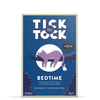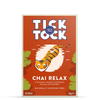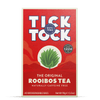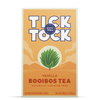We’ve teamed up with nutritional consultant Fiona Hunter to share her expert advice on maintaining a healthy diet to ensure a good night's sleep;
If you spent last night counting sheep in a desperate bid to get to sleep, the chances are that today you’re feeling somewhat jaded, a little more irritable than normal and not quite as productive. However the effects of a bad night’s sleep don’t end there.
Lack of sleep, warn experts, is a ticking time bomb in terms of our health. Studies show that getting less than 6 hours sleep a night is associated with an increased risk of diabetes, heart disease and obesity, and increases the risk of early death by 12%.
The good news is that sometimes a few simple changes to the things you eat and drink could be the answer to your sleep problems…
Cut the caffeine
If you’re having trouble sleeping try swapping regular tea and coffee for drinks like rooibos, rooibos green tea, fruit or herbal teas which are naturally caffeine free, after midday.
Caffeine is a stimulant so it’s the very last thing you need in your system if you want a good night’s sleep.
Caffeine enters the blood stream about 15 minutes after it’s consumed but the stimulant effects can last for between 5-6 hours. Some people who are particularly sensitive, can still feel its effects up to 10 hours later, so it’s important to choose caffeine free drinks for at least 6 hours before retiring for the night.
Most people associate caffeine with coffee but may be unaware that tea, including green tea, also contains caffeine. In fact, a cup of strong tea can contain more caffeine than a cup of coffee.
Cola, hot chocolate and some over the counter cold remedies also contain caffeine.
Go easy on the alcohol
Although a couple of drinks may make you feel drowsy and help you drift off to sleep, too much alcohol will cause your blood sugar level to drop which could cause waking in the middle of the night.
Drinking alcohol is also more likely to lead to snoring, which can restrict airflow into the lungs. This reduces oxygen in your blood which disturbs your sleep and contributes to your hangover.
Eat light if you want to sleep tight
Eating a heavy meal late in the evening can interfere with your quality of sleep by causing the stomach to produce acid, resulting in heartburn and indigestion.
Try to eat at least 3 hours before going to bed. Going to bed hungry can be just as bad as eating too much so if you eat your evening meal early have a small carbohydrate based snack like a bowl of cereal or a couple of oatcakes before bed.
Choose pasta rather than protein for your evening meal
A carbohydrate rich meal, like pasta, with a small amount of protein, will encourage the brain to produce serotonin which will help you to feel relaxed and sleepy.
What else you can do
- Napping during the day can disturb the normal pattern of sleep so try to avoid it, if you must nap, restrict yourself to 15 minutes maximum.
- Regular exercise can help promote better sleep but avoid vigorous exercise in the evening because it produces stimulants that stop the brain from relaxing quickly.
- Try to establish a regular bed time and waking up schedule. This helps set your body clock to these times.
- Try a relaxing routine, like a warm bath or some gentle yoga or stretching before bed.
- If you don't fall asleep within 15 minutes, get out of bed. When you're sleepy, go back to bed.
- If you can’t sleep try not to dwell on not sleeping or your anxiety will increase.
- Establish a regular relaxing bed time routine and try to avoid emotionally upsetting conversations and activities before trying to go to sleep.
- Associate your bed with sleep. It's not a good idea to use your bed to watch TV, listen to the radio, or read.
- Make sure your bedroom is the right temperature, neither too hot nor too cold.
- Try adding a dab of lavender oil to your pillow.

Esteemed nutritional consultant Fiona Hunter (BSc (Hons) Nutrition, Dip Dietetics), is a food writer, broadcaster and is known for her honest and practical approach to nutrition.




